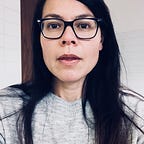Words for a new reality
Being inclusive means changing our words for the better.
I recently learned that the term “brown bag” has racial connotations. While the term seemingly refers innocuously to a lunchtime discussion, it has been used to assess African-American skin color. Those with skin lighter than the shade of a brown paper bag were granted special access and privileges.
Problematic words are everywhere. In the wake of the Black Lives Matter protests in 2020, internet companies and developer communities began openly talking about — and actively moving away from — references to slavery that are not only common in computer programming but deep in the kernel of operating systems. “Master” was replaced with words like “main” and “primary.” “Whitelist” became “allow list,” and “blacklist” transitioned to “deny list.”
Similarly, “guys” is a word that I long took for granted. I was a heavy user of “guys” to refer to just about anything: people, animals, socks, snacks, clouds, whatever. (I’m a little odd.) I rather liked the word and was at first unwilling to give it up, hoping that somehow, as others have suggested, it had lost enough of its gendered connotations. But “guys” is a gendered term, and one that can cause some people pain.
As Sherryl Kleinman explains, a big problem with “guys” is that “male-based generics are another indicator — and, more importantly, a reinforcer — of a system in which ‘man’ in the abstract and men in the flesh are privileged over women.” When we continue to use gendered words, we are reinforcing the marginalization and underrepresentation of women in general.
Not convinced? Try this: imagine a group of guys playing soccer. What if I told you all those guys are women? Did that match your expectations?
Now suppose I said that we’re looking to hire a guy to manage the team. Not only is the team more likely to imagine a man as their manager, but research has shown that gendered language is reinforcing. When jobs seem masculine, fewer women apply, and hiring committees tend to bias male candidates.
The real issue with terms like “brown bag,” “whitelist,” and “guys” is not simply that they should be avoided. Rather, the greater objective is to change the everyday dynamics that marginalize and exclude people. This means both enabling inclusion in the moment, like when I’m organizing a lunchtime discussion, and also leveraging the power of language to reshape our deeply held assumptions and expectations.
That’s why Merriam-Webster’s 2019 word of the year is so powerful. “They” is a basic and common word, yet it became one of the most looked up terms that year. When used as a gender-neutral pronoun, “they” provides a powerful alternative to the gendered options and thus a new way to represent — and be represented — in the world. As Kleinman notes, “We can use words to maintain the status quo or to think in new ways — which in turn creates the possibility of a new reality.”
I’ve decided to delight in the possibilities of new words…and new worlds. I don’t feel cool enough to say “y’all,” but I’ve been integrating the more expanded version “you all” in my lexicon. “Folks” seems promising, too.
As for my “brown bag,” it’s now a “parley.”
At least, it is for now.
